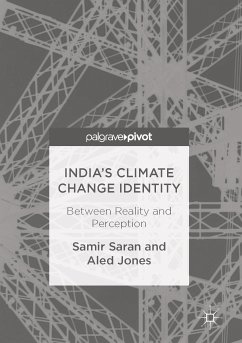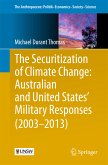This book presents a new and innovative approach to understanding the dynamics of international climate change negotiations using India as a focal point. The authors consider India's negotiating position at multilateral climate negotiations and its focus on the notion of 'equity' and its new avatar 'climate justice'. This book delves into the media's representation of India as a rural economy, a rising industrial power, a developing country, a member of the 5 emerging economies (BRICS), and a country with severe resource security issues, in order to examine the diverse and at time divergent narratives on India's national identity in the context of policy formulation. Those researching such diverse fields as international development, politics, economics, climate change, and international law will find this book offers useful insights into the motivations and drivers of a nation's response to climate change imperatives.
Samir Saran is Vice President at the Observer Research Foundation, India. He is honorary Director of the centre for peace and conflict studies at the Sardar Patel Police University (SPUP) and faculty at a number of other schools and programs. His research interests include: the representation of Islam and mediation of radicalism, climate change, internet governance and cyber security, and the emergence of BRICS in the international order.
Aled Jones is Director of the Global Sustainability Institute (GSI) at Anglia Ruskin University, UK. His research focusses on the finance sector and government and how they will respond to the impacts of global resource trends and climate change.
Dieser Download kann aus rechtlichen Gründen nur mit Rechnungsadresse in A, B, BG, CY, CZ, D, DK, EW, E, FIN, F, GR, HR, H, IRL, I, LT, L, LR, M, NL, PL, P, R, S, SLO, SK ausgeliefert werden.
Es gelten unsere Allgemeinen Geschäftsbedingungen: www.buecher.de/agb
Impressum
www.buecher.de ist ein Internetauftritt der buecher.de internetstores GmbH
Geschäftsführung: Monica Sawhney | Roland Kölbl | Günter Hilger
Sitz der Gesellschaft: Batheyer Straße 115 - 117, 58099 Hagen
Postanschrift: Bürgermeister-Wegele-Str. 12, 86167 Augsburg
Amtsgericht Hagen HRB 13257
Steuernummer: 321/5800/1497
USt-IdNr: DE450055826
Bitte wählen Sie Ihr Anliegen aus.
Rechnungen
Retourenschein anfordern
Bestellstatus
Storno









